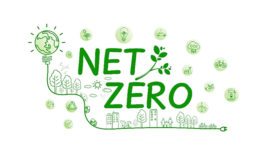Home » Keywords: » climate change
Items Tagged with 'climate change'
ARTICLES
Case Study
Revolutionizing carbon capture with TerraFixing
Read More
Management
We Can’t Afford to be Wrong
A 5-Teams (5T) View of the U.S. Military’s Approach to Climate Change
February 28, 2025
Management
Manufacturers Navigate New Sustainability Regulations
Companies must shift from viewing sustainability as a marketing tool to treating it as a core business function.
February 11, 2025
Management
We Need Visionary Leadership to Mitigate Climate Change
Leadership qualities demonstrated by visionary leaders W. Edwards Deming, Joseph Juran, and Armand Feigenbaum—systems thinking, continuous improvement, and stakeholder engagement—are essential for addressing climate change.
November 14, 2024
Management
Energy Management: Empowering Quality Departments to Lead the Energy Efficiency Charge
The quality department is well positioned to address energy efficiency within an organization. Efficient processes are a cornerstone of quality management.
September 2, 2024
Management
What an 1894 Crisis Has in Common with the Climate Change Crisis
Just as the development of the automobile and the shift towards electricity helped alleviate problems of the past, modern innovations like renewable energy, electric vehicles, and carbon capture technologies are essential in combating climate change.
August 24, 2024
Management
Electric Vehicles and a Systematic Approach to Climate Change
The urgency of addressing environmental issues cannot be overstated. To achieve a sustainable future, we must adopt this approach that considers the interconnections between social, economic, and environmental factors.
August 23, 2024
Management
Integrating Climate Change into ISO Standards
Driving Sustainability with Net Zero Guidelines and Climate Considerations in Management Systems
April 24, 2024
Management
ISO Climate Change: The Ongoing Story
One way to reframe this seemingly new push into climate change is to simply consider that your organization has been hunting for methods for years to improve operations.
April 23, 2024
Stay in the know with Quality’s comprehensive coverage of
the manufacturing and metrology industries.
eNewsletter | Website | eMagazine
JOIN TODAY!Copyright ©2025. All Rights Reserved BNP Media.
Design, CMS, Hosting & Web Development :: ePublishing











